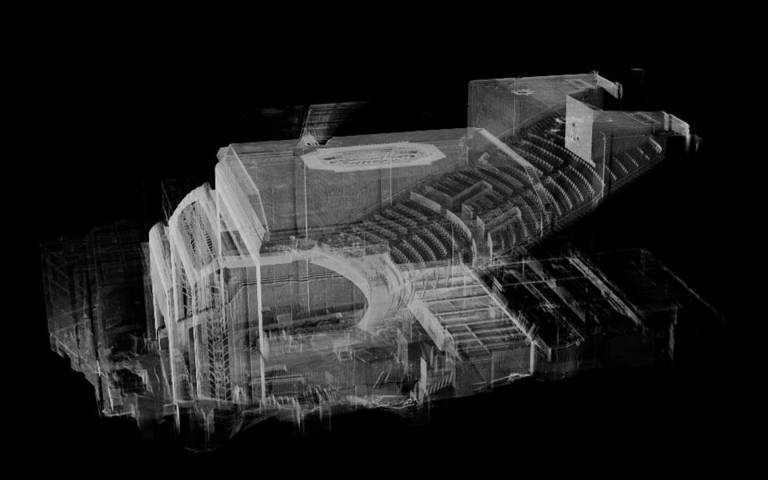The Bartlett Screening Room: Summer Term
11 May 2022–08 June 2022, 1:00 pm–2:00 pm

The Bartlett Screening Room is a series of events addressing questions around critical urbanism through the screening of short films and moving image, followed by discussion.
Event Information
Open to
- All
Availability
- Yes
Organiser
-
Henrietta Williams
About
The Bartlett Screening Room is a forum to address vital questions around critical urbanism through the screening of short films and artist moving image works. Projects are international in scope and collective viewing in virtual space is followed by a conversation with the artists/filmmakers. Sessions operate from within the Bartlett School of Architecture to engage with both students and publics. Sessions are open to the public as well as students and staff across UCL. The screenings may be especially interesting to those studying architecture, anthropology and related arts and social sciences.
The events run on alternate Wednesdays during the London lunch hour to allow the screening room to be joined by students and the public from Bogota, to The Bartlett, to Beijing. Watching together, talking together, thinking together.
The Bartlett Screening Room was set up in 2020 as countries across the world went into lockdown. It is a collaboration from Henrietta Williams, an artist/researcher based at The Bartlett School of Architecture, and Oliver Wright, programmer of Open City Documentary Festival.
Schedule
- 11 May 2022 | 13:00 | Riar Rizaldi
Tellurian Drama, Riar Rizaldi, 2020
With Riar Rizaldi and Crystal Bennes as invited respondent.
The Indonesian artist/researcher Riar Rizaldi has a practice with a focus on the relationship between capital and technology, extractivism, and theoretical fiction.
His short film ‘Tellurian Drama’ focuses on the abandoned site of a colonial radiotelegraphy station. The Malabar Radio Station utilised 2 vast opposing mountains to act as geo-antenna to transmit radio waves from the Dutch East Indies to the Netherlands, thus avoiding having to access transatlantic telegraphy cables operated by the British.
The resulting film employs a speculative fiction in the overarching script, which we are led to believe are extracts of texts from anthropologist and science fiction writer Drs. Munarawan. This elusive figure is an entirely fictional construct and narrative device which allows Rizaldi to problematize the notion of decolonisation as he weaves together archival imagery with contemporaneous footage of Indonesian workers reactivating the station as a historical site and tourist attraction.- 25 May 2022 | 13:00 | Audrey & Maxime Jean-Baptiste
Listen to the Beat of Our Images, 2021
With Audrey Jean-Baptiste & Maxime Jean-Baptiste, and Frederick Scharmen as respondent.
The short film ‘Listen to the Beat of Images’ subverts the official archives of CNES, a French government space agency, to tell stories from ground level about the development of a space station in French Guiana, South America.
Filmmakers and siblings Audrey Jean-Baptiste and Maxime Jean-Baptiste grew up in France as part of the French Guainese diaspora. Using the fictional device of a local narrator, the film presents a careful understanding of what happened in Korou when the French decided to establish the massive infrastructure of an international space station. The CNES film archives present lush tropical forests alongside white beaches, a new French style town is built to service the space station, we see rockets launch. These idealistic images are interspersed with black space, it is in these voids that the Jean-Baptistes allow for new untold histories to emerge from the complex colonial past of French Guaina, a country yet to gain independence.
- 8 June 2022 | 13:00 | Suneil Sanzgiri
Golden Jubilee, 2021
With Suneil Sanzgiri, and Aisling O'Carroll as respondent.
Suneil Sanzgiri is an artist, researcher, and filmmaker. His work spans experimental video and film, animations, essays, and installations, and contends with questions of identity, heritage, culture and diaspora in relation to structural violence.
‘Golden Jubilee’ is Suneil Sanzgiri’s third film in a series of works about memory, diaspora and decoloniality. The film begins with scenes of the filmmaker’s father navigating a virtual rendering of their ancestral home in Goa, India, created using the same technologies of surveillance that mining companies use to map locations for iron ore in the region. A tool for extraction and exploitation becomes a method for preservation. The father inhabits the voice of an ancestral spirit known locally as Devchar, whose task is to protect the workers, farmers, and the once communal lands of Goa. Using Sanzgiri’s signature style of blending 16mm direct animation, digital renderings, and desktop aesthetics, ‘Golden Jubilee’ thinks through how we can understand anti-colonial liberation struggles at a time when neo-colonial and neo-imperialist devastation still threatens the lives and lands of so many across the Global South.
Image: Lidar scan of the Coronet Cinema before demolition, Elephant and Castle, 2020, Keren Kuenberg
 Close
Close

